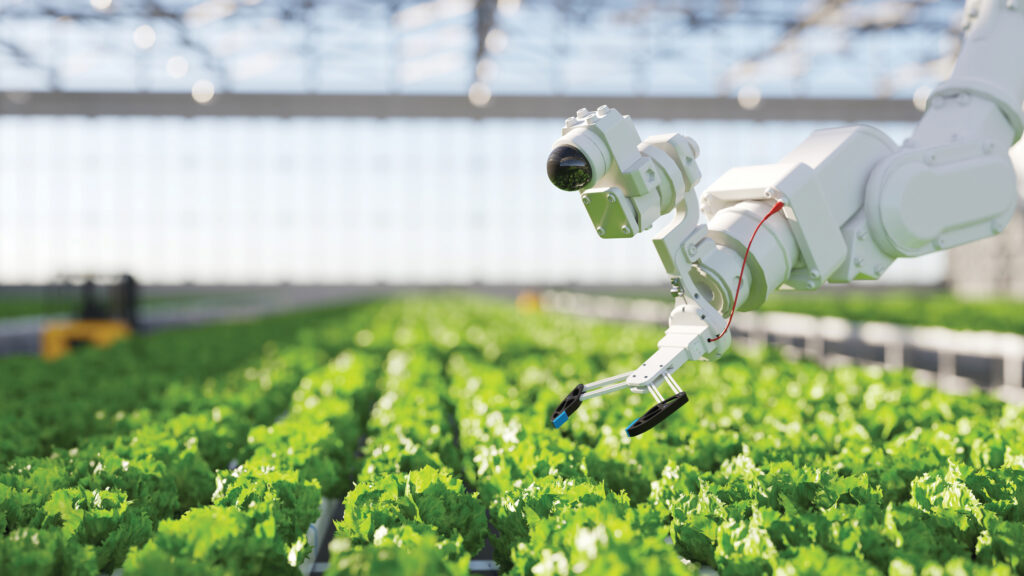Opinion: Agri-tech – a transition pathway or a Trojan horse?
 © Istockphoto
© Istockphoto When it comes to new technology in agriculture, there seems to be a distinct lack of vision, with short-term invested interests driving the agenda, rather than a long-term view of what society actually wants from its food system.
That at least was the view that ran through workshops with nearly 200 agroecological and regenerative farmers and growers as part of our 18-month Agroecological Intelligence project, looking at how high-tech farming aligns with the goals and values of agroecology.
See also: Have UK’s Agri-Tech Centres achieved and what’s next?
About the author

Pat Thomas is a director of A Bigger Conversation, a think tank set up by environmental group Beyond GM, focused on food production systems for the future. Here she sets out the case for a more holistic approach to agri-technology.
It is clear that successive governments have lacked a cohesive, visionary strategy for food and farming. Instead, they have been driven by ambitions for an innovation and knowledge-based economy.
For agriculture, this focus has prioritised the growth of agri-tech markets over the diverse needs of farming and food.
Defra/UK Research and Innovation’s funding, for example, targets “high growth” agri-tech businesses, with outcomes measured solely by economic metrics and the development of new tech, such as robotics and automation. Environmental Land Management payments also include “innovation contracts”, to promote the adoption of new technologies on farms.
As a new government mulls a potential new vision for agriculture, it’s worth examining the perspectives of agroecological and regenerative farmers more closely.
None that we spoke to in our workshops were inherently against technology or innovation. Most appreciated how digital technologies can assist with daily record-keeping, management, networking and marketing.
They were, however, reluctant to invest in technology for its own sake, and were not convinced by arguments of being “left behind” by the tech revolution.
Industrial farms
Many felt new agri-tech was aimed at larger scale, industrial farms, rather than smaller and more diverse agroecological businesses.
They were also wary of technologies that threatened their autonomy or disregarded their hard-earned knowledge, skills and decision-making capabilities.
“We need technology to help us be good managers, rather than allowing the technology to do the managing,” one farmer said.
Another added: “There is a trend anyway towards a loss of small farms, and increased numbers and sizes of larger farms. I think these technologies could increase that trend.”
Concerns about data “harvesting” were also common. One farmer noted: “Behind a lot of the technology pitched at agriculture is the intention to capture huge amounts of data, which benefits corporations more than farmers.”
Another felt: “A lot of the tech being pushed towards us is essentially a product looking for a market, and benefits manufacturers and retailers more than agriculture.”
Future perspectives
An agroecological and regenerative approach is seen by many as the future of agriculture, and such ecological and social values were evident throughout our discussions.
Many felt that the values underpinning agri-tech’s hard sell were not in line with what they wanted from their farms or their lives.
Agroecology’s emphasis on balancing the ecological, social and economic aspects of farming and the wider food system presents a challenge for policymakers.
It lays bare the systemic changes needed to make agriculture both productive and sustainable.
Nevertheless, most participants believed that “agroecologically appropriate” technology should reflect these values.
They felt developers had a responsibility to embrace whole systems and consider the appropriateness and consequences of their innovations, and that government had a responsibility to support projects with more values-driven and diverse goals.
It’s difficult to say definitively if agri-tech is a “transition pathway” or a “Trojan horse”.
However, it seems clear that incorporating agroecological values into technological development is both innovative and transformative.
Failure to recognise this limits our vision for farming at a time when we need more, rather than fewer, options.
